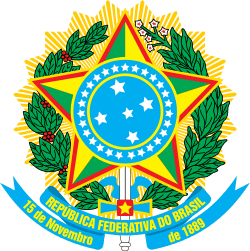Mascate War
The Mascate War (Portuguese: Guerra dos Mascates), also known as the War of the Peddlers, was a conflict fought between two rival mercantile groups in colonial Brazil from 1710 to 1711. On one side were landowners and sugar mill owners concentrated in Olinda. On the other were Portuguese traders in Recife, pejoratively called peddlers.

Part of a series on the |
|---|
| History of Brazil |
 |
|
|
|
|
|
|
Timeline
|
|
|
Background
- For history 1580-1640, see Iberian Union
- For history 1630-1654, see Dutch Brazil
Until the mid-17th century, Olinda was the main city of Pernambuco in northeast Brazil, where sugar plantations produced Brazil's major export, sugar. A lack of capital to invest in crops, equipment and manpower (slaves), combined with the declining price of sugar due to competition from European powers' investments in the West Indies, caused a crisis. In an effort to resolve this, the sugar planters of Olinda began to borrow money from traders from the settlement of Recife. At that time, Portuguese traders (pejoratively called "mascates," or "peddlers") living in Recife agreed to lend money to the planters in Olinda, but charged very high interest rates, increasing the planters' indebtedness.
Aware of Recife's economic importance, merchants asked king of Portugal that the settlement be elevated to town status. In February 1709, shortly after receiving the Royal Charter which declared it a town, merchants erected the town hall and a pillory. Recife was formally separated from Olinda, the seat of captaincy.
Economically dependent on Portuguese merchants, the landowners did not accept the Pernambuco political-administrative emancipation of Recife, before then a settlement subject to Olinda. The emancipation of Recife was seen as an aggravating the situation of local landowners (debtors) before the bourgeoisie Portuguese (creditors), which by this mechanism put them at the level of political equality.
The conflict
As the separation between the two cities was being implemented in 1710, the lords of Olinda revolted, with mill owner Bernardo Vieira de Melo among their leaders. When there was sedition among the peddlers of Recife and the European gentry of Olinda, the sectarians of the hawkers were nicknamed Manoel Gonçalves Tunda-Cumbe, vines and Sebastião Pinheiro Camerão. [Note 1] No condition to resist, the wealthiest merchants of Recife fled to avoid being captured. Having members of the landed aristocracy abandoned Olinda to escape the plantations where they lived, hostilities commenced in Vitória de Santo Antão, led by their Captain General, Pedro Ribeiro da Silva. These forces, thickened in Afogados with reinforcements from São Lourenço de Mata and Olinda, under the leadership of Bernardo Vieira de Melo and his father, Colonel Leonardo Bezerra Cavalcanti, invaded Recife, demolishing the pillory, tearing the Provincial regal, freeing arrested and persecuting people connected to the governor Sebastião de Castro Caldas Barbosa (peddlers). This, in turn, in order to ensure their safety, he withdrew to Bahia, and left the government over the captaincy of Bishop Manuel Álvares da Costa. The crown appointed a new governor Félix José de Mendonça. The peddlers fought back in 1711, invading Olinda and causing fires and destroying villages and plantations in the region. [Note 2]
End
The new governor and the intervention of troops sent from Bahia ended the war. The commercial bourgeoisie was supported by the metropolis, and Recife maintained its autonomy. The city intervened in the region in 1711, arresting the leaders of the rebellion. Finally after much struggling, which included the intervention of colonial authorities, this fact was consummated in 1711: Recife was to be treated like Olinda from that time on.
Legacy
With the victory of the merchants, the war reaffirmed the dominance of merchant capital (trade) on the colonial production. After the victory of the hawkers, traders perceived the predominance of trade in relation to colonial production that had already occurred since the lords of Olinda caught the interest on money borrowed so the peddlers can keep their colonial system.
The autonomist feeling of Pernambuco, which came from the fight against the Dutch, continued to manifest itself in other conflicts such as the Conspiracy of Suassuna, Pernambucan Revolution of 1817 against Portugal and the Confederation of the Equator against Brazil.
See also
Notes
- ↑ the nobles and their partisans, shaved legs - because when they would take arms, they went barefoot, with less embarrassment for the manning, and so were known as skilful in them, and very valuable, so in the history of Pernambuco, the moniker is synonymous with shaved legs nobility.
- ↑ In the 19th century, Frei Caneca wrote about it: "When the country lacked the arms and blood of their sons, along with the browns have not given him his arms and blood whites and blacks? When those tears have washed their irons despotism, did not go well with the edge of tears? Before the pernambucanos have suffered more than other major storms in Pernambuco. Sedition in the last century, all entering the fray, only about white people came the plagues and lightning, the dungeons were full of the most respectable people of Pernambuco, others piled on more entrenched in the woods and distant hinterlands, and they were loaded irons and sent to Portugal. ' («Frei Joaquim do Amor Divino Caneca», Coleção Formadores do Brasil, 1994, p. 283).
References
- Frei Joaquim do Amor Divino Caneca, Coleção Formadores do Brasil (Collection of Brazil Trainers), 1994 (Portuguese)
- "The Golden Age of Brazil", Charles Boxer
